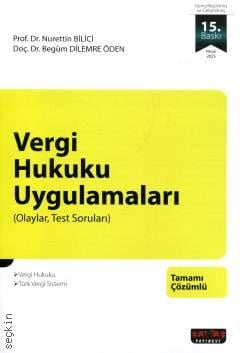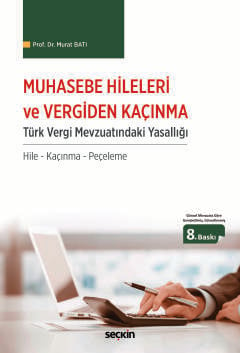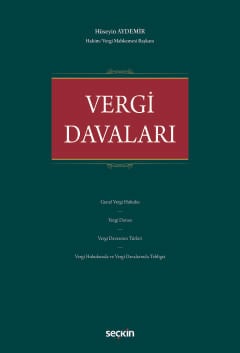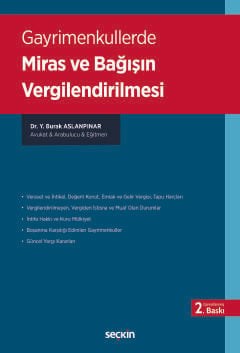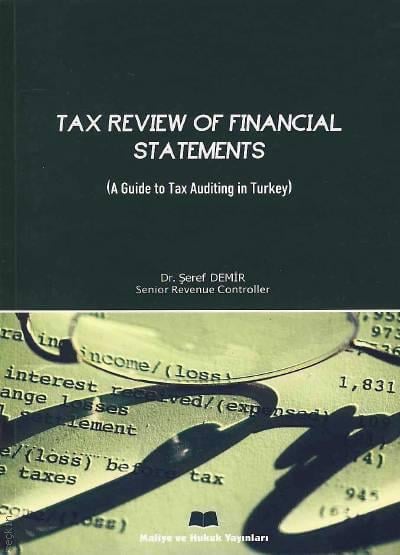
Tax Review of Financial Statements
1. Baskı,
Ekim 2007
Kitabın Detayları
Dili:
Türkçe
Ebat:
16x24
Sayfa Sayısı:
225
Kitabın Fiyatı:
345,00₺
İndirimli (%90):
35,00₺
24 saat içerisinde temin edilir.
Kitabın Açıklaması
Basically, as a kind of compliance audit, tax audit determines whether accurate tax amount was paid to the tax authorities. Within this framework, from the perspective of financial statements, the issues in tax audits may be related to assets & liabilities in terms of their valuation measurements as regulated in Tax Procedural Law and revenues & expenses in terms of their taxability and deductibility (whether revenues and expenses were correctly categorized and classified as tax deductible and non–tax deductible items).
This research was focused on the tax audit for corporate income taxpayers from the standpoint of tax legislation. in addition to Turkish accounting and tax legislation, International Accounting Standards and US Generally Accepted Accounting Principles were covered comparatively as needed.
This text is mainly based on the Author's Ph.D. dissertation including new Corporation income tax practice which has become effective from the beginning of 2007. Additionally, the Turkish Uniform Chart of Accounting System was also added to the text as an appendix. Based upon years of observing experience of the Author as a tax auditor working for the Presidency of Revenue Administration of Turkey, this text represents one of the fırst majör efforts to integrate financial statement items and tax review of them together.
As always in so large a research, of course there are some people to thank. First of ali, I would like to thank the dissertation advisor, Professor Necdet Şensoy, for his great contribution and management in every stage of this work. I would also like to thank my friend Hardy Griffîn, who read and edited the text with great çare. I must thank Bünyamin Ozturk, CPA, for encouraging me to publish this work as a text. Finally, I want to thank to my lovely wife Nursen who provide me a warm and happy environment that enable me to do my work.
Kitabın Konu Başlıkları

Introductıon

Balance Sheet

Income Statement
Kitapla İlgili Kategoriler
Yorumlar
Kitabın Fiyatı:
345,00₺
İndirimli (%90):
35,00₺
24 saat içerisinde temin edilir.
Hakkımızda
|
Uluslararası Yayınevi Belgesi|
Kaynakça Dosyası|
Kişisel Verilerin Korunması |
Üyelik|
Siparişlerim|
İade Politikası|
İletişim